Australians urged to ‘check their poo’ amid ‘deadly’ cancer rise
A mum-of-two has detailed how a change in her toilet habits revealed she had developed a “deadly” cancer that is on the rise in Australia.
Illness
Don't miss out on the headlines from Illness. Followed categories will be added to My News.
A mum-of-two has detailed how a change in her toilet habits revealed she had developed a “deadly” cancer that is on the rise in Australia.
Natalie Hunter, 45, started having stomach issues four years ago, but didn’t think much of it. Eventually, the situation worsened, so she went to visit a doctor who suggested she might have diverticulitis, a condition where pouches in the colon become inflamed.
A year on, she had a plethora of blood tests done where it was discovered she had low iron levels — again, she didn’t think it was anything to worry about.
But, six months later she began to notice a change in her bathroom habits.
“My stools had started to thin out, and had gone really dark — this was around Christmas time,” she told news.com.au.
“It was late in the year, and I was celebrating more and eating extra things so I thought my tummy just wasn’t happy.
“But after being constipated for about five days, I went to the GP and he gave me a medication they use for colonoscopies.”
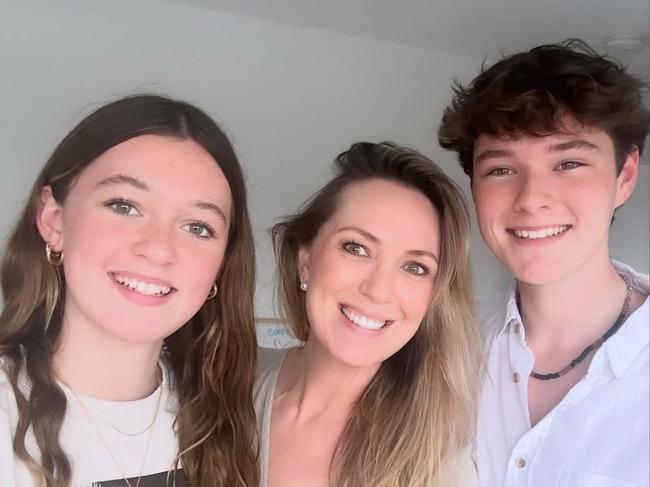
The Sunshine Coast woman said the medication made her stomach feel like it was shifting, but didn’t result in her being able to go to the toilet, so, she went to the GP where the same thing happened again.
By this point, she was “beside herself” in pain, and it landed her in the emergency room where a scan was performed and a tumour that was blocking her bowel was discovered.
Doctors diagnosed her with stage four bowel cancer, explaining that the tumours had spread to her liver, and one was size of her palm.
In a split second, the mum-of-two’s life completely changed.
While the disease, also known as colorectal, colon and rectal cancer, is more common in older people, new data shows that Australia has the highest rates of bowel cancer in people aged under 50 in the world.
The spike in those aged 25–49 developing the condition has been described as “alarming” by experts, with people in that age group warned to pay attention to their bodies.
For Ms Hunter, the thinning and the darkness in her stool was an indicator that her bowel was narrowing and bleeding, she said.
But common signs include blood in stools, changes in bowel habits, abdominal pain, vomiting, weight loss, and unexplained tiredness.
Not even 24 hours into being in hospital, Ms Hunter was fitted with a stoma bag so she could go to the bathroom, which helped relieve her pain.
Her kids, who were 11 and 14 at the time, were unaware of what was going on as she wanted to make sure she first had a clear treatment path.
“It just threw everything in turmoil. Work-wise, I ran my own business, and I had to cancel clients for like a year out because we didn’t know how long it was going to take,” she said.
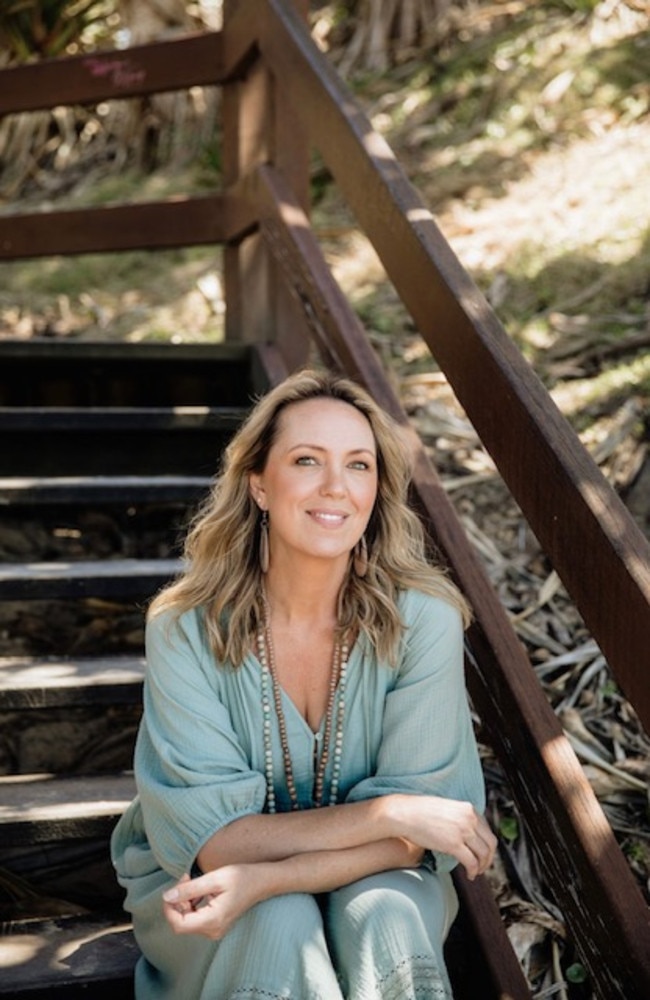
Her treatment started three weeks after she was diagnosed, with chemotherapy being used in order to shrink the tumours so doctors could operate.
Then she had her first liver resection, a procedure where part of the liver is moved to prevent the cancer from spreading, but she had to wait for it to grow back to have the same procedure again.
“All up they had removed 70 per cent of my liver and I ended up being really sick for months afterwards,” she said.
“I was in and out of hospital every other day and having to do weekly stays because I kept getting infections.
“My body was just really struggling and then all of a sudden I turned a corner.”
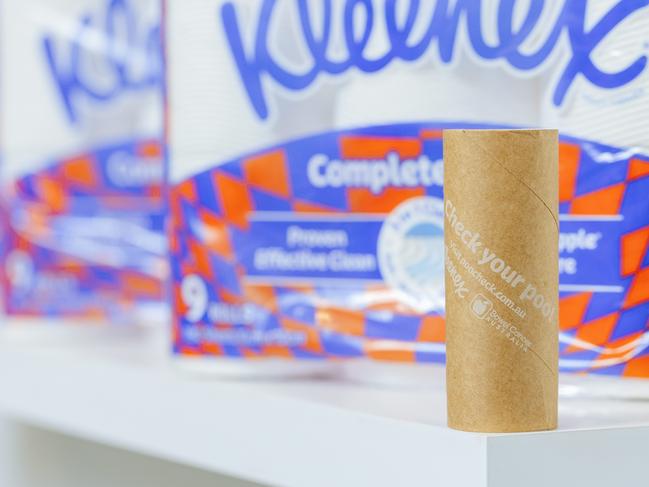
But the good news didn’t last long for the Bowel Cancer Australia advocate, who started getting bowel obstructions yet again, but this time it was due to the scar tissue.
Then, during a routine follow up scan in September 2024, doctors discovered the cancer had spread to her lungs.
Now, she’s currently on a course of “heavy duty” chemotherapy.
Ms Hunter is sharing her story to make other Australians aware of the symptoms — such as fatigue, abdominal pain, weight loss and changes in bowel habits — as she herself had no clue, or any family history of the illness.
She also wants to show that bowel cancer isn’t something that only impacts older people.
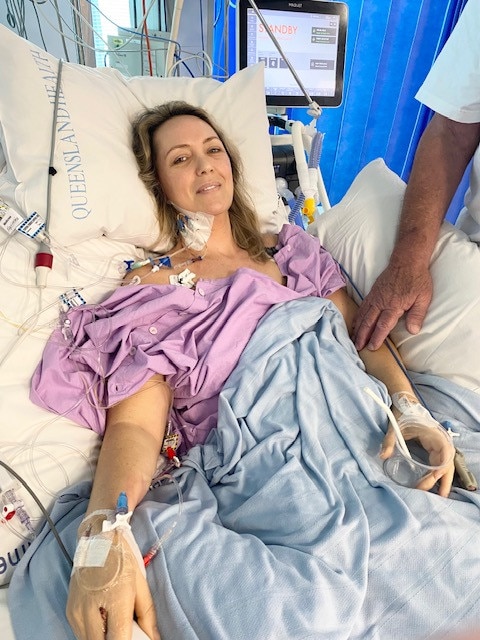
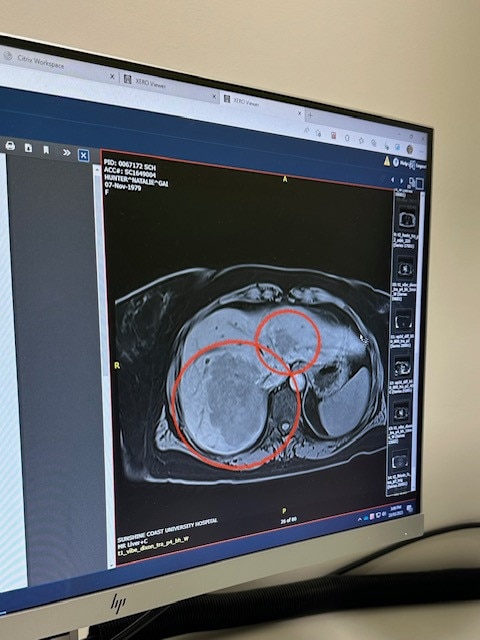
As part of her advocacy work, Ms Hunter is taking part in a campaign with Kleenex and Bowel Cancer Australia to help Australians learn more about symptoms of the potentially deadly disease.
It encourages Aussies to “check their poo”. The products will feature a link to find more information about it and support.
Adam Carpenter, mill manager at Kimberley-Clark Australia, said: “Bowel cancer is the country’s second-deadliest and most deadly cancer for Australians aged 25-54, but is 99 per cent treatable if detected in the earliest stage.
“Knowing the signs and symptoms of bowel cancer is key to early detection, including noticeable changes in bowel habits, abdominal pain, unexplained weight loss or tiredness, and blood in the stool.
“However a lack of symptom awareness and the stigma and taboos around checking your poo are a major barrier in catching the disease early.”
Ms Hunter said many people are embarrassed to bring up what happens in their bathroom, but it’s “as normal as breathing”.
“We have to check our poos,” she said.
Originally published as Australians urged to ‘check their poo’ amid ‘deadly’ cancer rise





